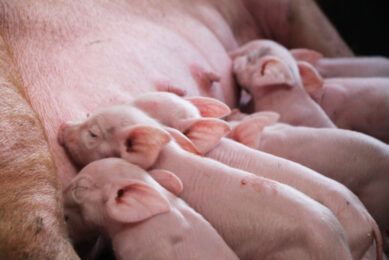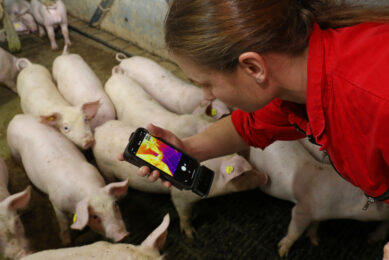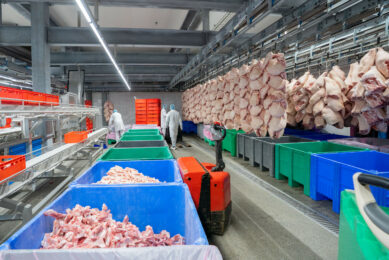Annoyance with animal welfarists

One of my Facebook friends regularly shares comments of my country’s most successful animal welfare activist organisations. These annoy me.
This week another post appeared on my screen. It was the umpteenth post; I felt it was time for me to stand up, to react.
Let me briefly explain why.
It all started when the Netherlands’ largest retailer Albert Heijn announced introducing a novel type of fresh poultry meat, branded as ‘Dutch chicken’. Apart from a sign stating ‘new’, the package comes with a Dutch flag and some accompanying text. ‘Vital breed’, it says, ‘good living conditions’, and ‘100% from Holland’.
Zooming in, the retailer explains that now in stocks are five different types of responsible chicken. The ‘Dutch chicken’ is made of a breed which grows slower and lives on average for 45 to 47 days. In addition, they get 10% more space than in regular broiler production. Among things mentioned are a natural day and night rhythm, 100% responsible soybean feeding and environmentally friendly manure processing.
The animal welfare activists did not wait long to respond. Some years ago the activists already introduced a derogatory but very effective alternative for broiler, being ‘plofkip’ – the best analogy in English would be ‘pop chick’, which suggests a rapid, yes even sudden growth explosion, to get ready for human consumption.
In a press release, the activists this time called the new type of chicken a ‘flop chick’, spoke of the ‘misleading of consumers’ and they added that ‘the greenwashing of new pop chick varieties has started’.
Now why does this annoy me, being an editor for a pig magazine?
I’ve known the activist organisation for many a year, and they target any species in the animal husbandry industry. For once, it’s not the pigs which are the focus of attention, but this may change overnight.
The activists are not the only animal welfare organisation in the country, but they have rapidly grown to become the country’s most successful, and it achieves its goals by cunningly launching press releases and very frequent radio advertising stating that supermarket so-and-so is selling ‘wrong meat’. The effect follows usually within several weeks, as retailers prefer to avoid bad press – and announcements are made of making changes in the production process.
The confrontational approach is one of the things I detest. In the past, I met other, more approachable animal welfare organisations, which had the guts to appear at meetings organised by the livestock industry. Having a firm goal of improved animal welfare at heart, these people know the industry, understand its dillemas as well, come across as reasonable, and usually provide the basis of healthy and good discussions with an open mind. I have always appreciated this approach.
I started writing my reply in the Facebook frame.
But did these modest welfarists ever achieve what they wanted in only weeks – promises for a better animal welfare, that is? Getting patted on your back for being so emphatic may not be the goal for any animal welfare organisation.
I erased my reply again.
But why not just embrace a retailer starting a new type of chicken with the aim of providing some more animal welfare? Why say ‘no’ all the time?
I wrote words like these.
Does the retailer really offer extra animal welfare? In the Netherlands there is an animal welfare scheme, where meat is awarded one, two or three stars depending on the amount of welfare animals had during their lives – with one referring to a minimum of welfare and three being organic. The scheme is implemented nationwide, accepted by all major retailers, and applies to many different kinds of meat. I checked, the ‘Dutch chicken’ does not have a star – but its look and feel suggests something alike.
Once again I erased my reply.
My thought is good though! It would be great if developments are being fueled and initiated by consensus, by a genuine drive from livestock producers and the industry. When they are allowed to come up with ideas, surely this is a lot more real and supported than promises which are being forced upon them after a process of public pressure?
Once again I filled the box with text.
But what would drive the livestock industry if activists kept silent? Would there be any thought about animal welfare at all? Probably yes, but perhaps not to the same extent.
Pfff – I erased my new text again.
I feel my Facebook friend doesn’t really know the extent of the problem when reposting something of this activist organisation. Does the friend know about China, about Vietnam, about all those countries over the world with a vastly growing, more affluent, and more hungry population? Does my friend know that an uncompromised steering for more animal welfare leads to more land being needed to feed the world? And that in a small country like the Netherlands this may appear feasible, but in China with 1.3 billion souls increased animal welfare may mean an additional land use which is simply not there? Where do we all want the tigers and the pandas to live if so much additional space is needed for animals?
I started writing again.
I’m not against animal welfare, by the way. I think as humans we have the responsibility to take care of the pigs and the poultry well, from the day that they are born, until the day that they die. I can genuinely enjoy seeing pigs which have been granted that little bit of extra space, or to see crate-free farrowing in process. I must admit I sometimes wonder whether it isn’t better if everyone of us started eating less meat to combine all the goals.
I erased my reply again.
I feel my Facebook friend is not really understanding what kind of organisation it is when reposting their material. Why not post about it using your own words? Why always endorse everything they say? There must be things the friend doesn’t agree with?
I filled the text box with other text.
I scroll back a bit in the Facebook history. I sigh. There’s absolutely nothing that points in that direction. The friend appears convinced of being right.
For the last time I deleted my comment. And I went back to work.











